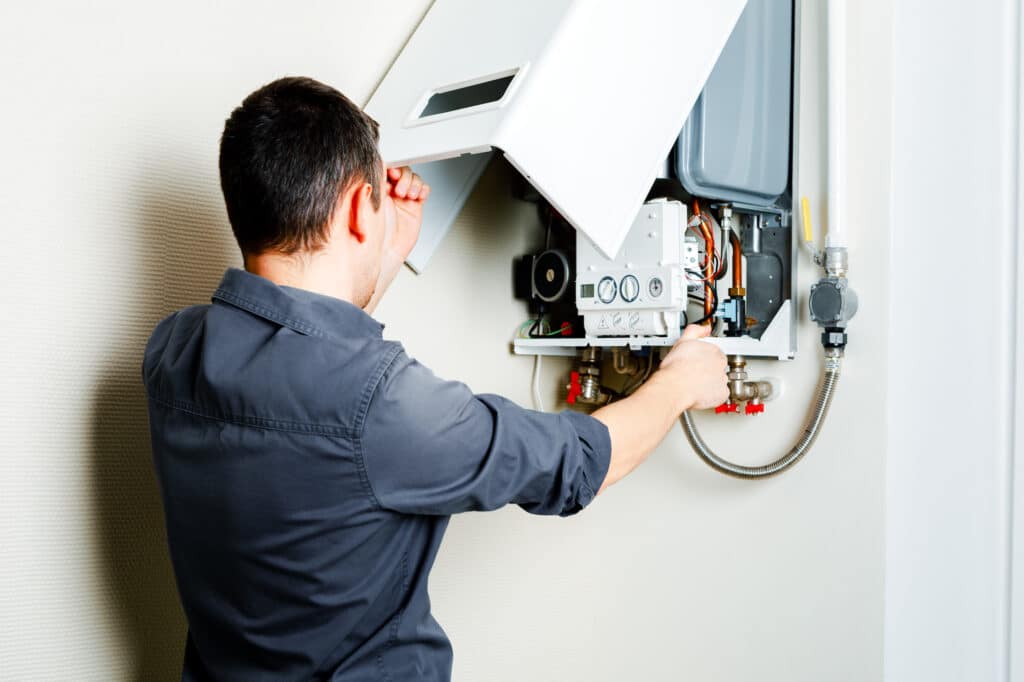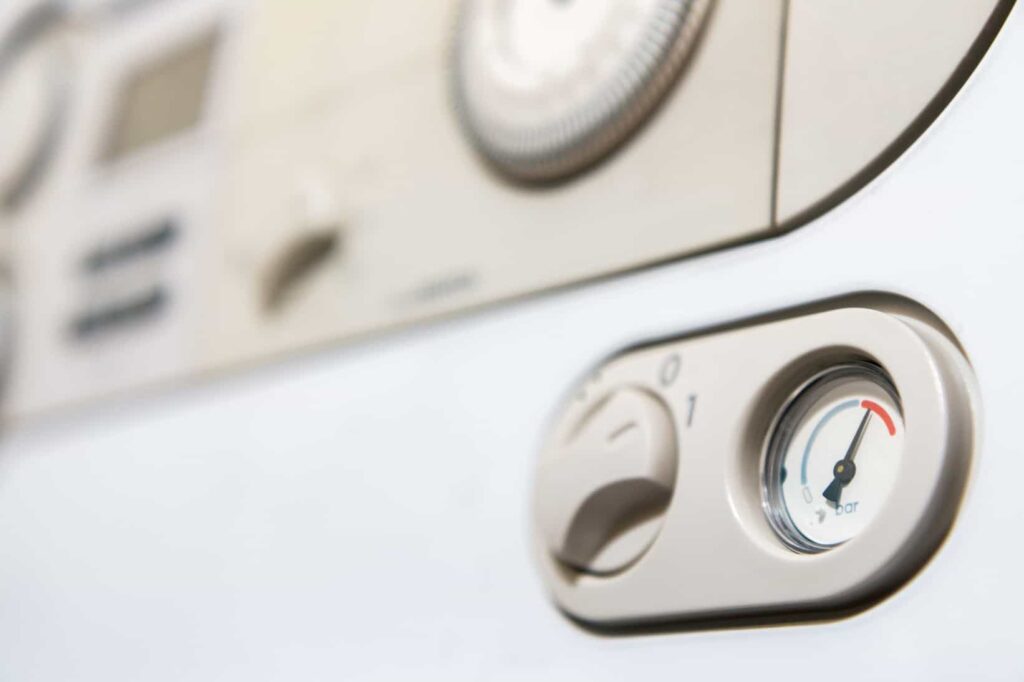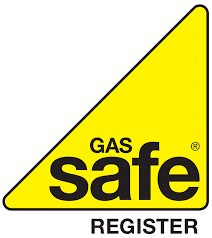
Your boiler pressure is an essential consideration when it comes to your heating system. Firstly pressure is a key part of how the central heating system works, and secondly because it can be a key indicator of potential problems leaking in your system. Understanding boiler pressure, what high boiler pressure is, what can cause it, and what you need to do about it is highly important.
So let’s begin by discussing what boiler pressure actually is.
The basics of boiler pressure explained
Put simply, the boiler pressure is the balance between the water and air in your central heating system. A central heating system works by pumping hot water around the pipes in your house. These pipes carry the water through your radiators or underfloor heating, then back to the boiler where it can be warmed up again. It’s also likely what causes hot water to come out of your taps and showerhead.
To do that, however, the system relies on pressure. It’s the pressure that pushes the hot water around the pipes. So whether you have too much pressure or not enough, your central heating system is not going to be working efficiently. Not only is this inconvenient, but if left unattended it could also lead to much bigger and for more expensive problems later on, so it pays to keep a close eye on your boiler.
How do you tell when your boiler pressure is incorrect?
Most boilers will have a pressure gauge clearly visible on the front. It’s a simple, usually analogue, dial that displays the pressure in your boiler system in bar. Usually, most combi boilers will have a reading that goes between 0-4.
There will often be a green area marked out on the dial, generally between roughly 1-1.5 bar, which is your system’s ideal pressure.

If your pressure is under this, your central heating system isn’t going to work very well, for the aforementioned reason that it won’t have enough pressure to pump the hot water around your central heating pipes. The good news is that with most boilers it’s fairly easy to top up the pressure yourself. It’s reasonable to do this every now and again, but if you need to top up your boiler’s pressure more often than every few months, it may indicate that there could be a more serious fault at play. This is when you should call a Gas Safe heating engineer.
If your boiler pressure is above 3 on the gauge it has likely already shut itself down. This is to keep the situation safe and to prevent the boiler or the central heating system in general becoming damaged if pressure is excessive.
Your boiler may read anything up to 2.5 bar on the dial while you’re using it. This is perfectly normal, as pressure will increase as the pressure flushes hot water through your central heating system. This is especially true if you have your thermostat set quite high. If you are regularly seeing numbers of 3 or above you should definitely contact a Gas Safe heating engineer to examine your system. If your boiler is already approaching or over 10 years old it may indicate that the system is due for replacement.
What actually causes excessive boiler pressure?
There could be many reasons that your boiler pressure is too high. That said, more often than not, it will be down to one of two reasons. One of the reasons has a very affordable fix, the other may require more of an investment.
1. Excessive water in the system
Too much water in the system can mean your boiler has too much pressure. One of the most common reasons for this is low pressure, which is fixed by letting more water into the system. If you let too much water in, however, it can cause high pressure. Check your pressure gauge – if it’s over 1.5 even though the central heating system and boiler are off, this could be a cause.
Fixing it is easy and cheap, and involves bleeding your radiators – which just means letting water back out of the system. You do this by purchasing a special radiator key, which can be found for very little money online or in hardware stores. The key fits on the valve on the radiator. Once seated, twist very gently and slowly anti-clockwise. You should first hear a hiss as air escapes the system, followed by water starting to leak out of the valve – do this for each radiator, checking the pressure each time you bleed one.
2. A malfunctioning boiler
If this isn’t the issue and your boiler is consistently reading excessive pressure, it could be a much deeper problem. It may be something relatively simple like the diverter valve or filling loop not working properly. Or it may be an issue further within the boiler itself. Regardless, it’s time to call your preferred Gas Safe heating engineer and have them look at the problem.
If your boiler is over five years old, it becomes a matter of diminishing returns to repair it. As boilers age, they will just keep developing more and more problems. Depending on the issue, it may be a better option to consider replacing your boiler altogether. Don’t only think of the cost, but think of the inconvenience of having an old boiler breaking down all the time.
This is a discussion you can have with your heating engineer, depending on your boiler’s condition.
Is excessive boiler pressure dangerous?
Boilers have numerous safety measures, which means that if your boiler pressure is too high the boiler will likely have already turned itself off – both to protect itself and the rest of your central heating system. So high boiler pressure is nothing to panic about.
If you’re not confident in determining the cause for yourself, however, it’s essential you contact one of our qualified heating engineers. They will be able to diagnose and repair the fault in your system easily and affordably – so unless it’s a simple fix, don’t try it at home.
